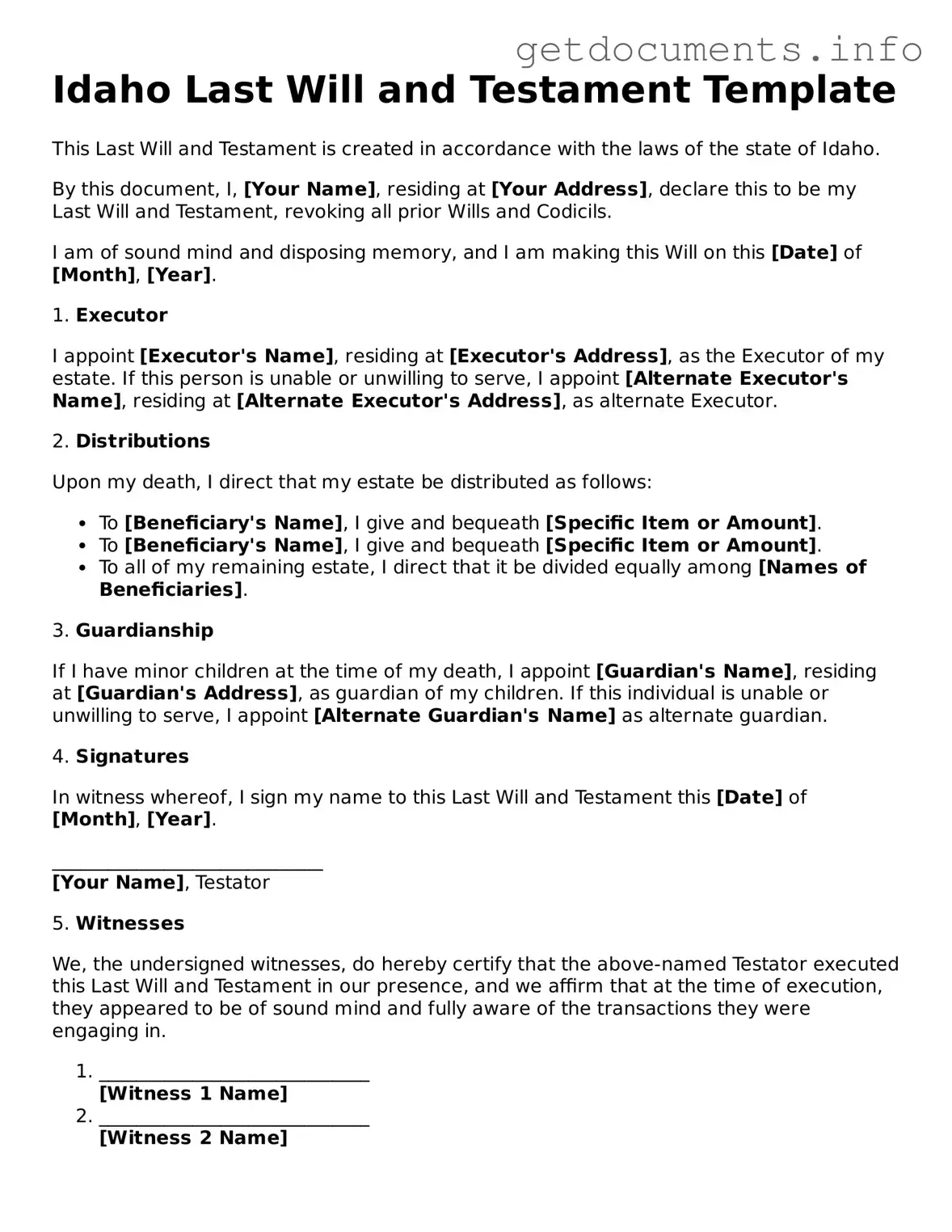Free Last Will and Testament Template for Idaho
The Idaho Last Will and Testament form is a legal document that allows individuals to outline their wishes regarding the distribution of their assets after death. This form ensures that personal belongings and finances are managed according to one's preferences, providing peace of mind for both the individual and their loved ones. To get started on creating your will, click the button below.
Access Last Will and Testament Editor

Free Last Will and Testament Template for Idaho
Access Last Will and Testament Editor
Got places to be? Complete the form fast
Fill out Last Will and Testament online and avoid printing or scanning.
Access Last Will and Testament Editor
or
⇩ PDF File
